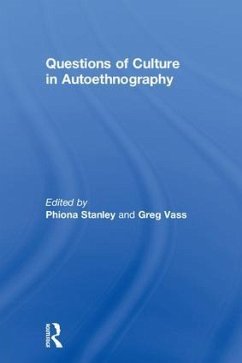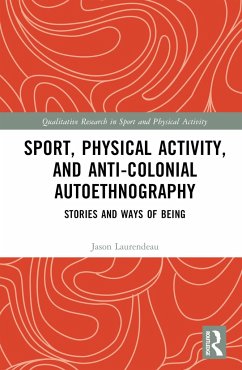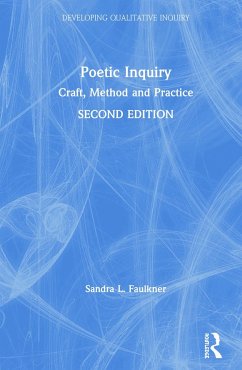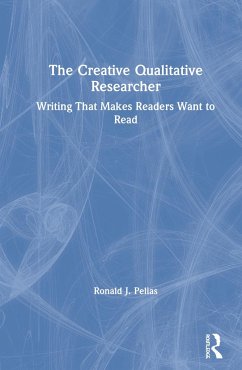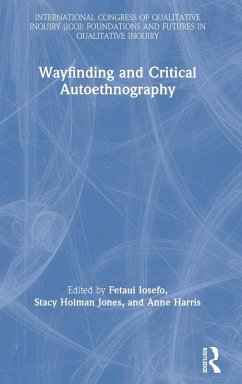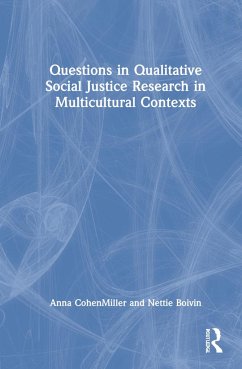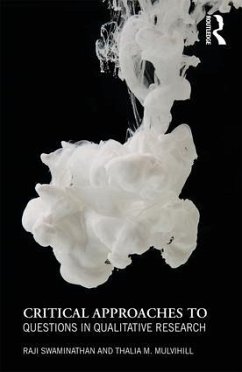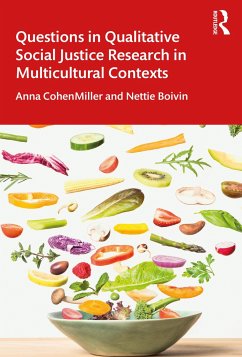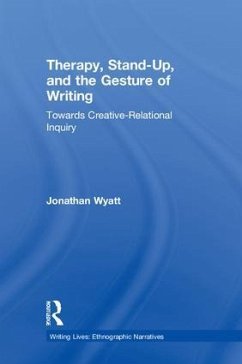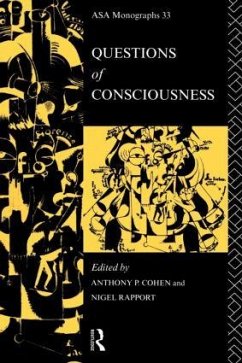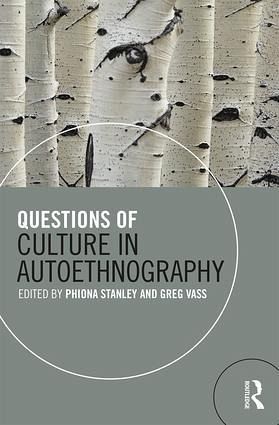
Questions of Culture in Autoethnography
Versandkostenfrei!
Versandfertig in 1-2 Wochen
52,99 €
inkl. MwSt.

PAYBACK Punkte
26 °P sammeln!
Autoethnography allows researchers to make sense of the 'ethno' - the cultural - by studying their own experiences - the 'auto'. It links the self to the cultural, allowing for an inductive grounding of theoretical insight into researchers' lived experiences. But what happens when the culture that we research is not conventionally or entirely our 'own'? What happens when our culture does not neatly conceptualise the 'auto' as an individual, Western self? And does autoethnographic writing risk reducing cultural 'Others' if we cannot help but see them through 'imperial eyes'? Questions of Cultur...
Autoethnography allows researchers to make sense of the 'ethno' - the cultural - by studying their own experiences - the 'auto'. It links the self to the cultural, allowing for an inductive grounding of theoretical insight into researchers' lived experiences. But what happens when the culture that we research is not conventionally or entirely our 'own'? What happens when our culture does not neatly conceptualise the 'auto' as an individual, Western self? And does autoethnographic writing risk reducing cultural 'Others' if we cannot help but see them through 'imperial eyes'? Questions of Culture in Autoethnography showcases how cross-cultural autoethnographies might be done effectively, ethically, and reflectively. Chapters include: identity work among Tibetans in India and among the descendants of Spanish conquistadores in Appalachia; insider/outsider identities in myriad contexts from Mexico to Japan; embodied (gendered, raced, sized) intercultural experiences from Samoa to Aotearoa/New Zealand and from Canada to Malawi; and language stories from Korea to Singapore and from Somalia to Australia. It also explores cultural Otherness within 'a' culture, including researchers' accounts of working with Indigenous Australians, of contesting mainstream cultural narratives from a body positive perspective, and as a US American man in New Zealand's 'bloke culture', only seemingly sharing the same English-language-speaking, 'Western' culture. For all scholars of qualitative methods and autoethnography, the book has a dual purpose - to show and to tell. It presents evocative autoethnographies of and about 'culture', as it is variously understood, and discusses the issues inherent in autoethnographic writing.





